Can a Boxer Eat Pasta?
Date Published: February 12, 2024 | Last Modified: February 16, 2024
Let's kick things off by addressing a common question among boxer owners - yes, boxers can indulge in pasta! In this article, we will delve into the health benefits of incorporating pasta into your boxer's diet, as well as explore the pros and cons associated with this carb-loaded treat. Safety concerns regarding feeding pasta to boxers will also be discussed, reassuring you about any potential worries. We'll uncover whether pasta is toxic to these lovable dogs and ultimately determine if this popular human food can be a good addition to your furry friend's meals.
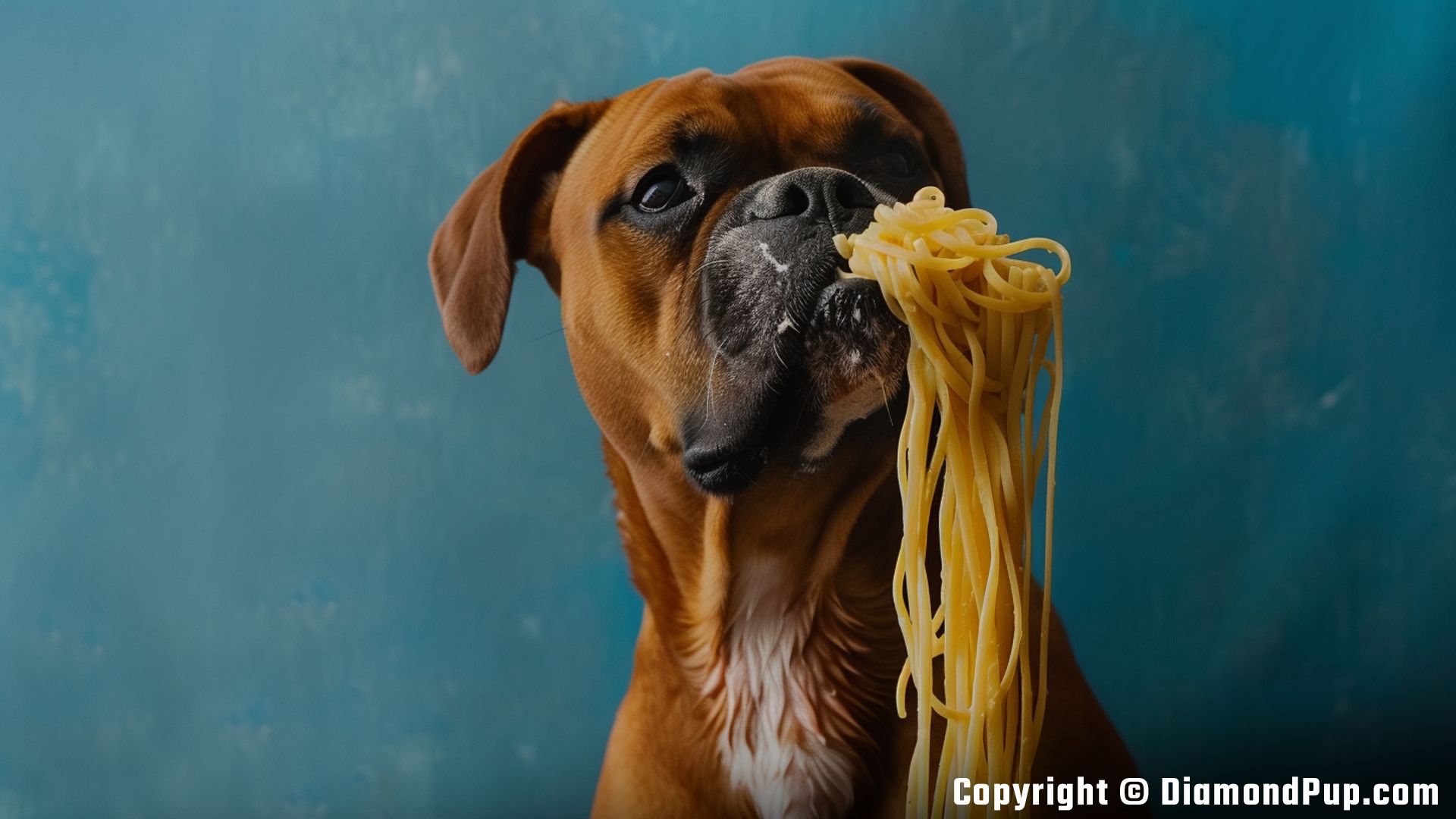
Are Pastas Good for Boxers?
When it comes to feeding pasta to your Boxer, it's essential to consider the nutritional content of the pasta itself. Opt for whole grain or whole wheat pasta options, as these varieties are higher in fiber and provide more nutrients compared to white pasta. Fiber is crucial for maintaining digestive health in Boxers and can help prevent issues like constipation. Additionally, whole grain pasta offers complex carbohydrates that are a good source of sustained energy, perfect for the active nature of Boxers.
However, it's important to note that pasta should only be given to your Boxer in moderation. While it can be a tasty addition to their diet, too much pasta can lead to weight gain and potentially contribute to other health issues like pancreatitis. Always ensure that pasta is cooked plain and without any seasonings or sauces that may contain ingredients harmful to dogs, such as garlic or onions. Overall, balancing your Boxer's diet with appropriate portions of pasta alongside their regular dog food can be a safe and enjoyable way to switch up their meals.
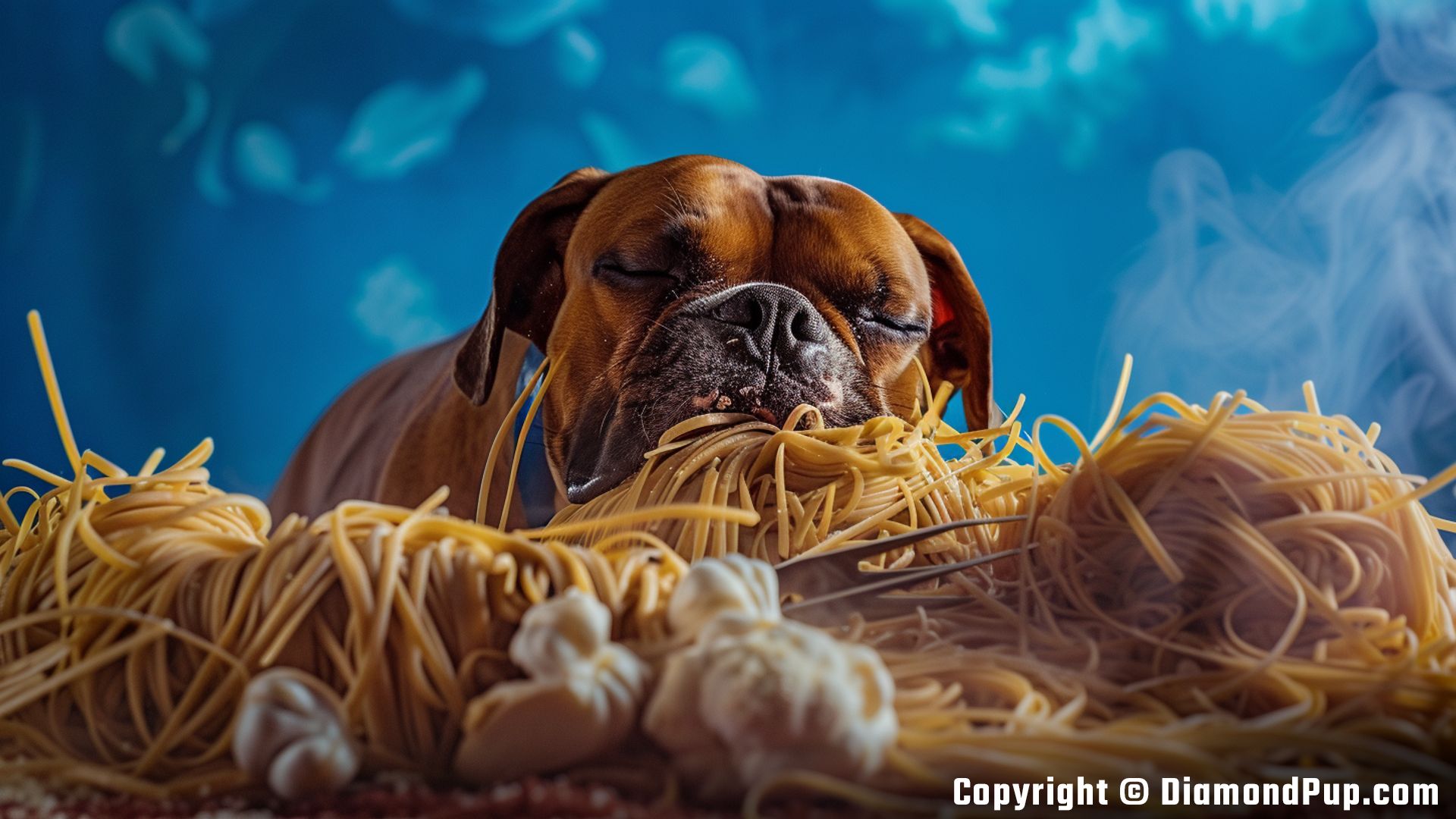
Understanding the Benefits of Pastas for Boxers
One significant benefit of incorporating pasta into your Boxer's diet is the energy boost it provides. Pasta is a good source of carbohydrates, which are the main fuel for your dog's body. Carbohydrates are broken down into glucose, providing energy for all the daily activities your Boxer engages in, from playing fetch to going on walks. Additionally, pasta can be a great calorie-dense option for active Boxers who need a little extra fuel to maintain their energy levels throughout the day.
Furthermore, pasta can offer a variety of essential nutrients for your Boxer's overall health. When paired with nutrient-rich toppings like lean meats, vegetables, or healthy fats, pasta can contribute to a balanced diet for your furry friend. Just like humans, dogs require a mix of proteins, fats, carbohydrates, vitamins, and minerals to thrive, and incorporating pasta can help diversify your Boxer's nutrient intake.
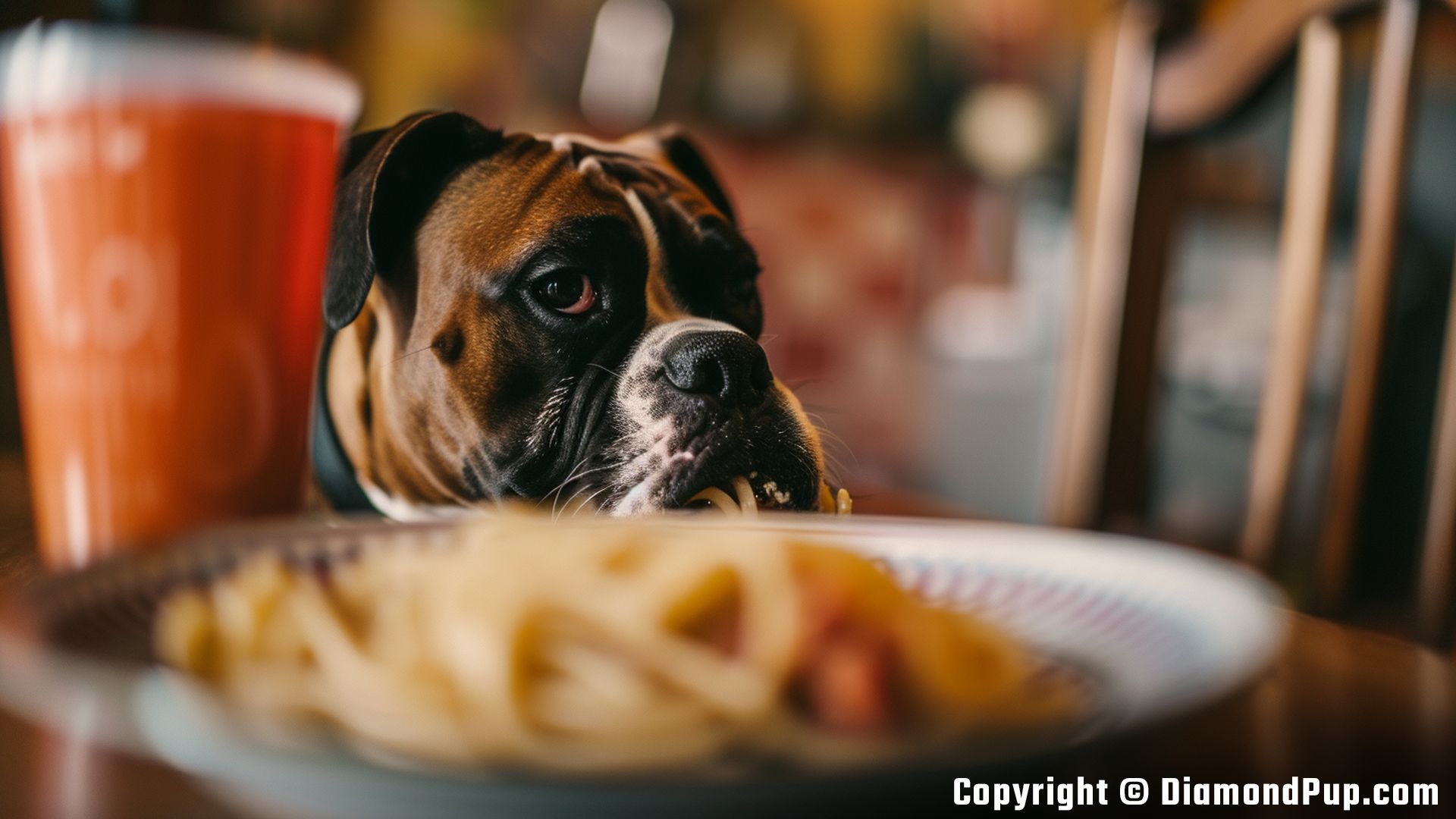
Nutritional Benefits of Pastas for Boxers
When it comes to the Boxer breed, pasta can offer some nutritional benefits if included in moderation. Pasta is a good source of carbohydrates, which can provide a quick and efficient energy boost for your active Boxer. Additionally, whole grain pasta varieties contain fiber that can support healthy digestion and prevent constipation, a common issue in boxers due to their deep chest and narrow waist.
Opt for whole wheat or whole grain pasta options to ensure your boxer receives not only energy but also essential nutrients like B vitamins, iron, and magnesium. These nutrients are important for maintaining your Boxer's overall health and vitality. Remember to cook the pasta thoroughly and avoid adding any seasonings, sauces, or ingredients like garlic and onions that can be harmful to your furry friend.
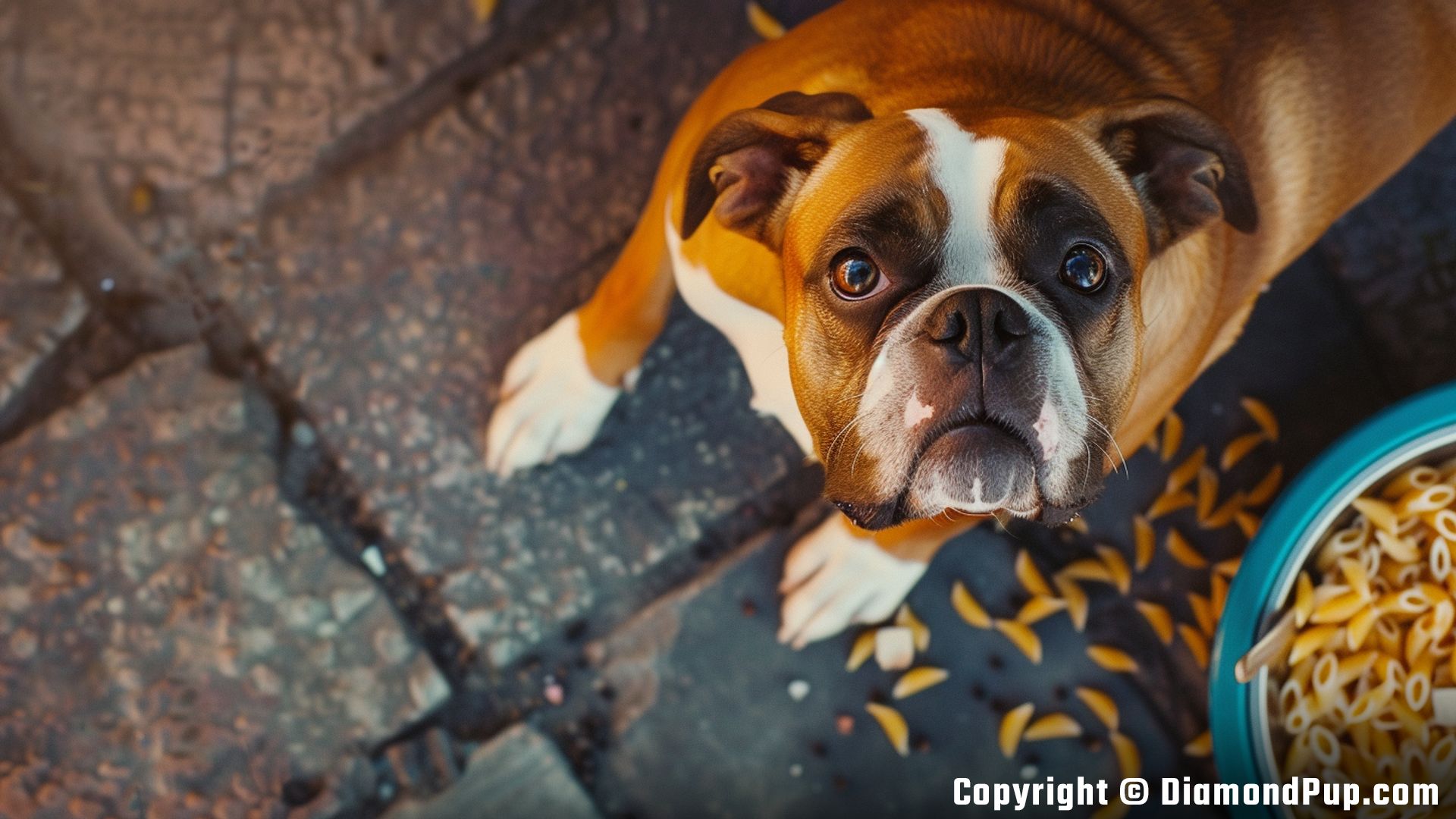
Safely Introducing Pastas to Your Dog's Diet
When introducing pasta to your Boxer's diet, it is crucial to start slowly and monitor for any signs of digestive upset. Begin by offering a small amount of cooked plain pasta without any sauces or seasonings. Watch for any symptoms such as vomiting, diarrhea, or excessive gas. If your Boxer tolerates the pasta well, you can gradually increase the amount over time. It's important to remember that pasta should only be a small part of your dog's overall balanced diet, alongside high-quality commercial dog food specifically formulated for Boxers.
Moreover, it's essential to choose the right type of pasta for your Boxer. Opt for whole wheat or grain-based pasta over white pasta, as it offers more fiber and nutrients. Additionally, avoid pasta shapes that could pose a choking hazard, such as long strands like spaghetti. By following these guidelines and consulting with your veterinarian, you can safely incorporate pasta into your Boxer's diet as an occasional treat.
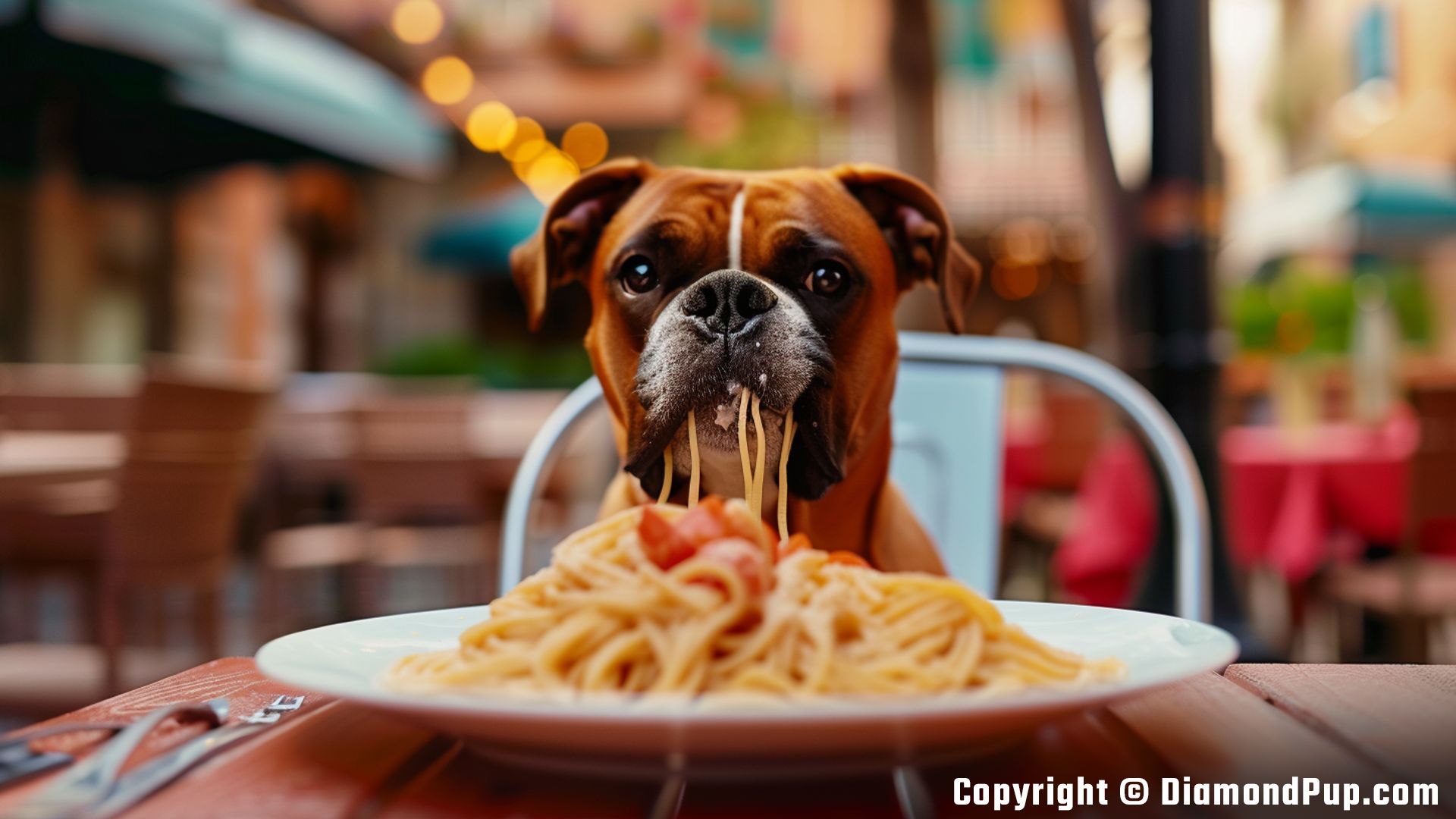
How much pasta can a dog eat safely?
When it comes to feeding pasta to your Boxer, moderation is key. While pasta can be a tasty treat for your furry friend, it should only make up a small portion of their overall diet. As a general guideline, pasta should not make up more than 10% of your Boxer's daily caloric intake. It's important to remember that pasta is high in carbohydrates and can lead to weight gain if fed excessively. Additionally, pasta should be served plain and cooked without any added sauces or seasonings that may be harmful to your dog.
If you're unsure about how much pasta to feed your Boxer, consult with your veterinarian or a veterinary nutritionist for personalized feeding recommendations based on your dog's individual needs. They can help determine the appropriate portion size based on your Boxer's age, weight, activity level, and overall health status. By feeding pasta in moderation and ensuring a balanced diet, you can safely incorporate this carb-rich food into your Boxer's meals as an occasional treat. Remember, variety is key to providing a nutritious and enjoyable diet for your beloved pet.
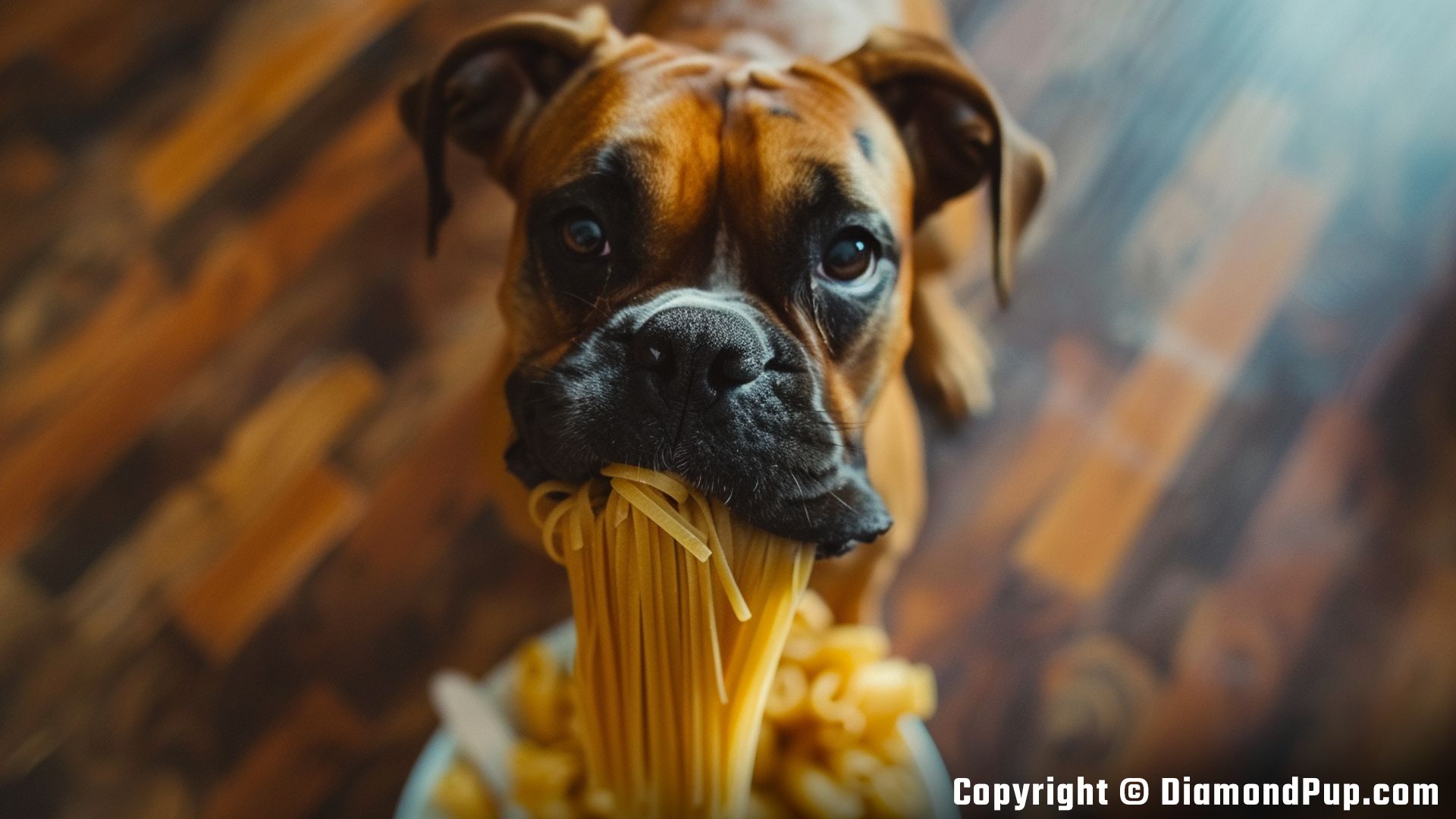
Tips to Remember When Feeding Your Dog Pastas
When feeding your Boxer pasta, it's important to consider the portion size. While pasta can be a tasty addition to your dog's diet, it should only make up a small portion of their overall meal. Aim to mix the pasta with a balanced diet of high-quality dog food to ensure your Boxer receives all the essential nutrients they need to thrive.
Additionally, be mindful of the type of pasta you are feeding your Boxer. Opt for whole wheat or grain-based pastas over refined white pasta to provide more fiber and nutrients. Avoid adding any seasonings or sauces that may be harmful to your dog, and always ensure the pasta is cooked thoroughly to avoid any digestive issues.
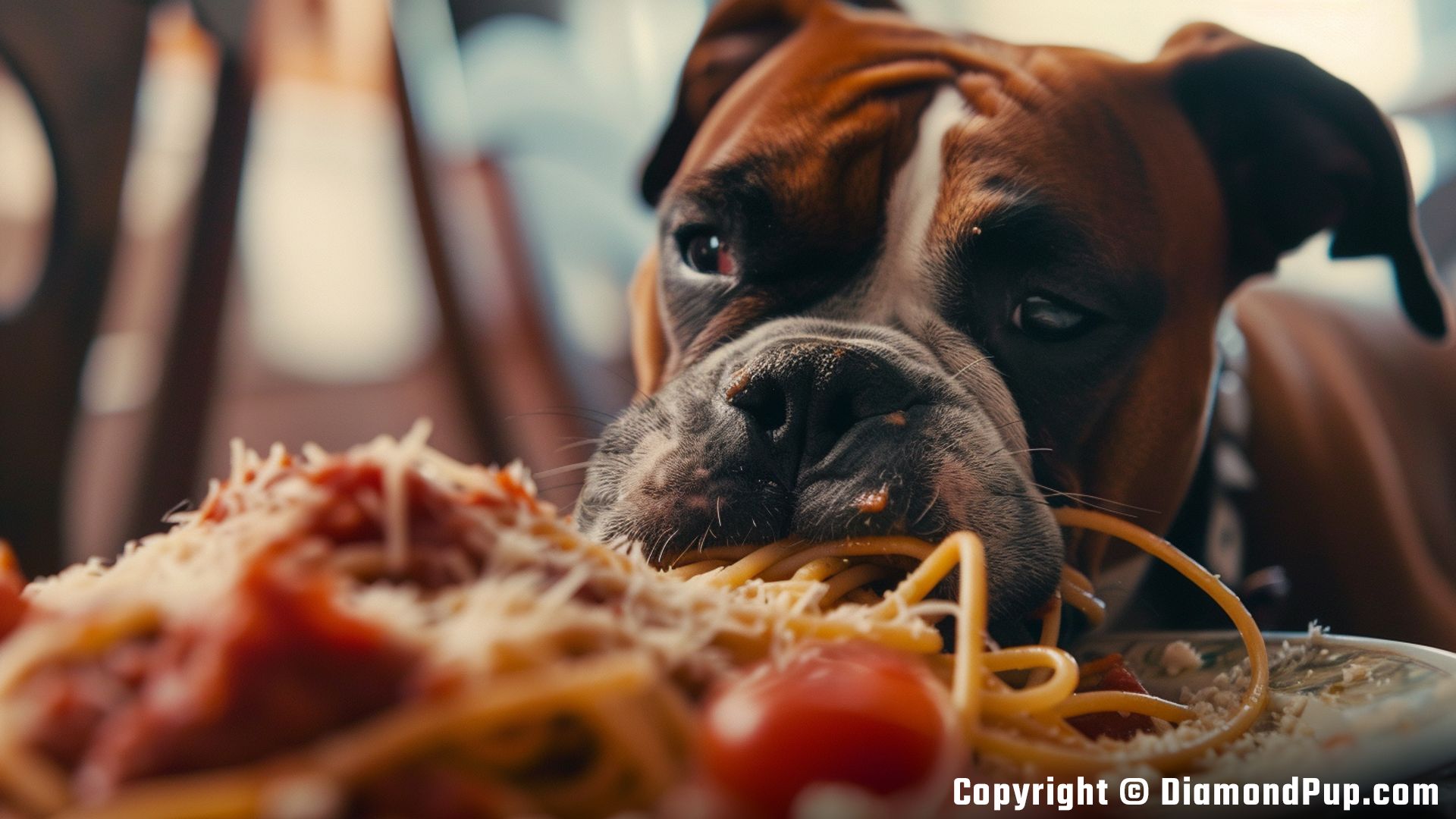
Feeding Your Dog Pastas
When feeding your Boxer pasta, it's crucial to choose the right type of pasta with high nutritional value. Opt for whole grain or whole wheat pasta, as they are rich in fiber, vitamins, and minerals essential for your Boxer's health. Avoid pasta with heavy sauces or seasonings, as they can upset your Boxer's stomach or add unnecessary calories. Additionally, portion control is key - make sure not to overfeed pasta to prevent obesity and other health issues.
Consider incorporating lean protein sources such as boiled chicken or turkey with the pasta to create a balanced meal for your Boxer. This will provide the necessary protein for muscle maintenance and energy levels. Always consult with your veterinarian to determine the best feeding plan for your individual Boxer based on their age, weight, activity level, and overall health condition.
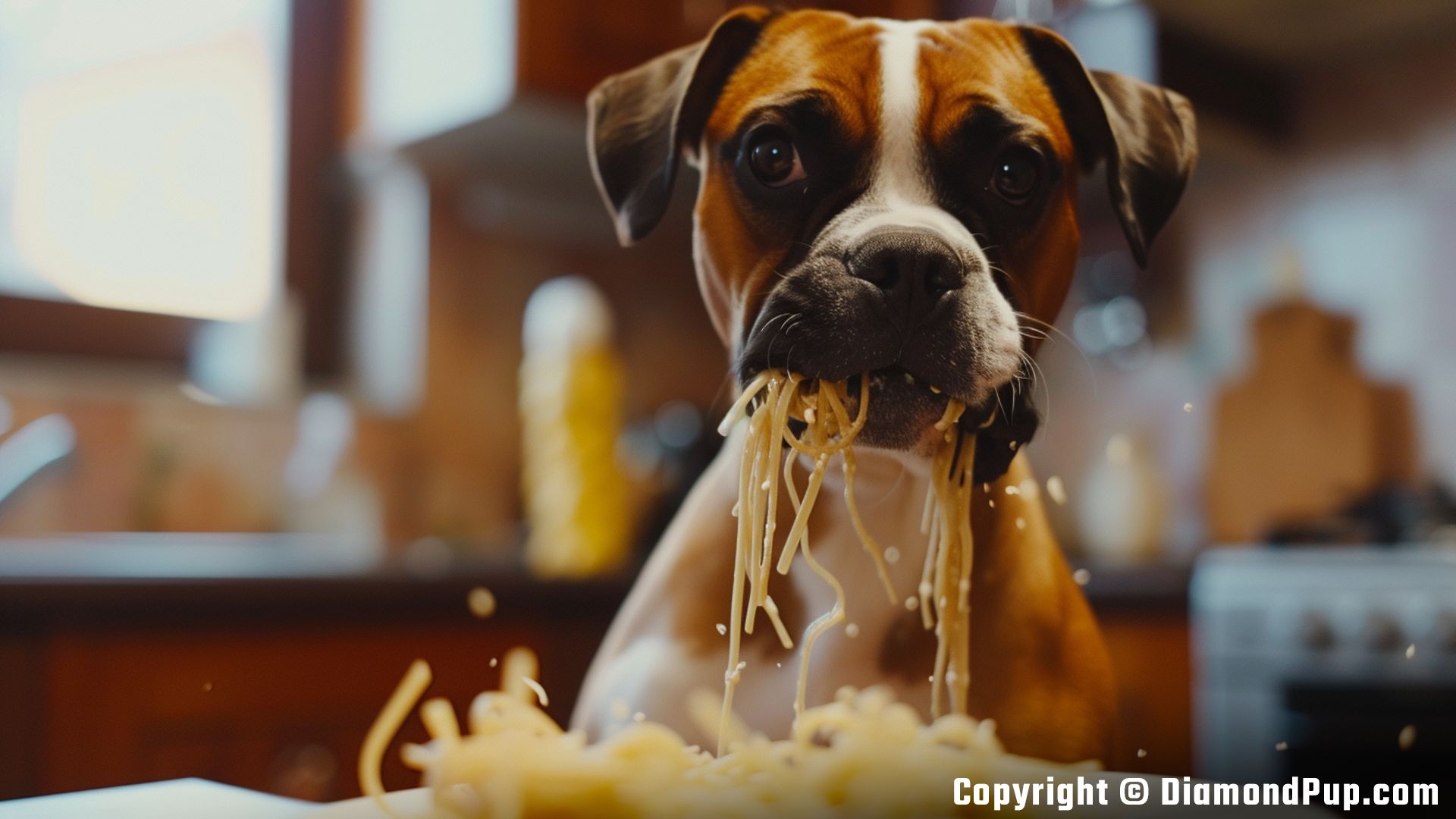
How to properly feed your dog pastas
When feeding pasta to your Boxer, it's crucial to opt for whole grain or whole wheat pasta varieties. These options provide more fiber, vitamins, and minerals compared to white pasta, which undergoes refining and stripping of nutrients during processing. Additionally, it's essential to cook the pasta thoroughly to increase digestibility for your pup. Overcooked pasta may be easier for your Boxer to chew and digest, reducing the risk of any digestive issues.
Furthermore, ensure that the pasta is served plain without any sauces, seasonings, or ingredients that may be harmful to your Boxer, such as onions or garlic. These additives can upset your dog's stomach or even be toxic to them. Moderation is key when feeding pasta to your Boxer to prevent excessive calorie intake and potential weight gain; give pasta as an occasional treat rather than a primary component of their diet.
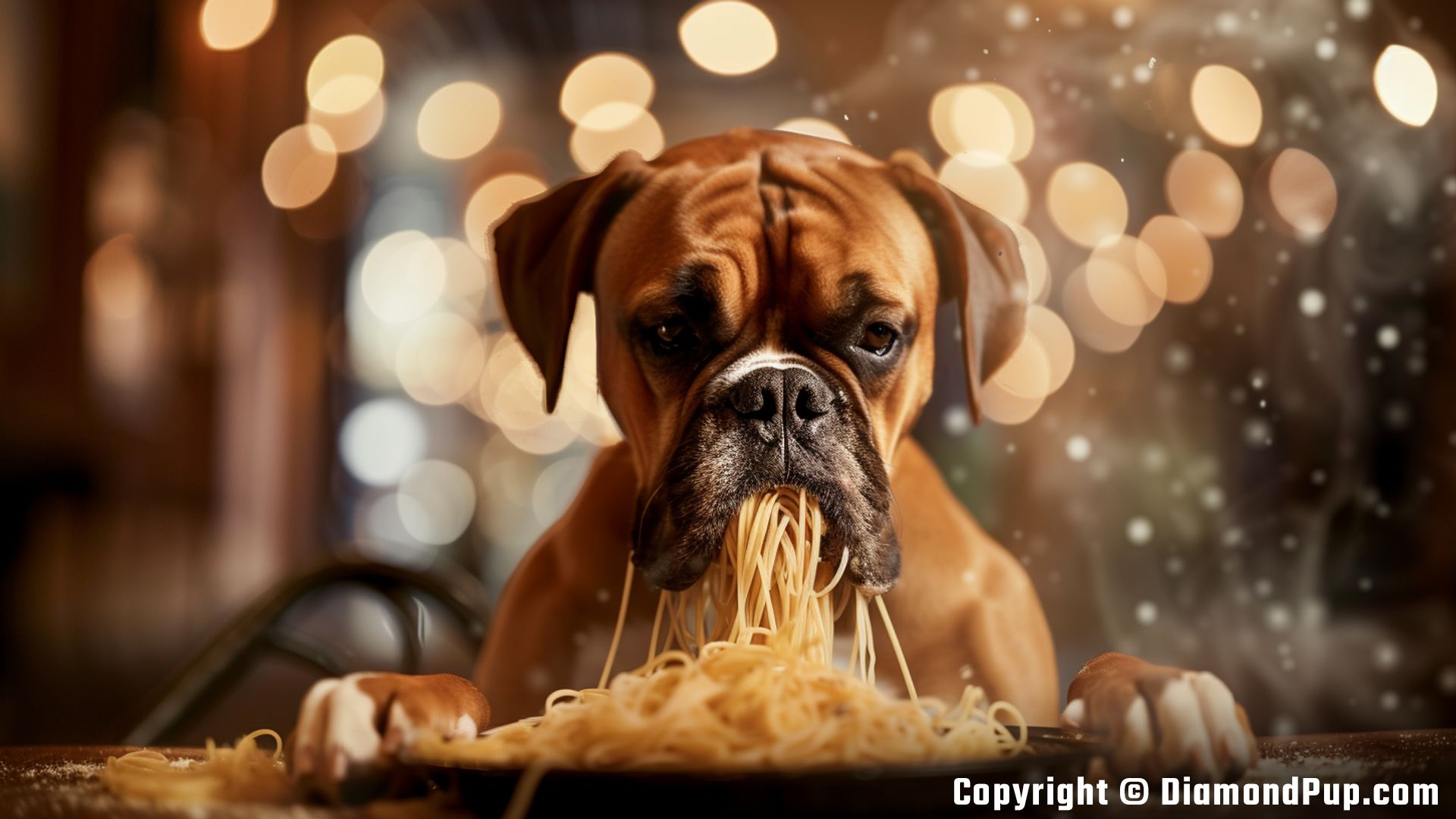
Do Boxers Like Pastas?
Boxers, known for their playful and energetic nature, tend to enjoy a variety of food, including pasta. However, it's essential to be mindful of the ingredients and seasonings used in the pasta dish. Opt for plain cooked pasta without any garlic, onions, or heavy sauces that may upset your boxer's stomach or pose a risk of toxicity. Additionally, always ensure that the pasta is cooked al dente to prevent any gastrointestinal issues. People also ask can poodles eat pasta or other similar questions to ensure their pets' safety with various foods.
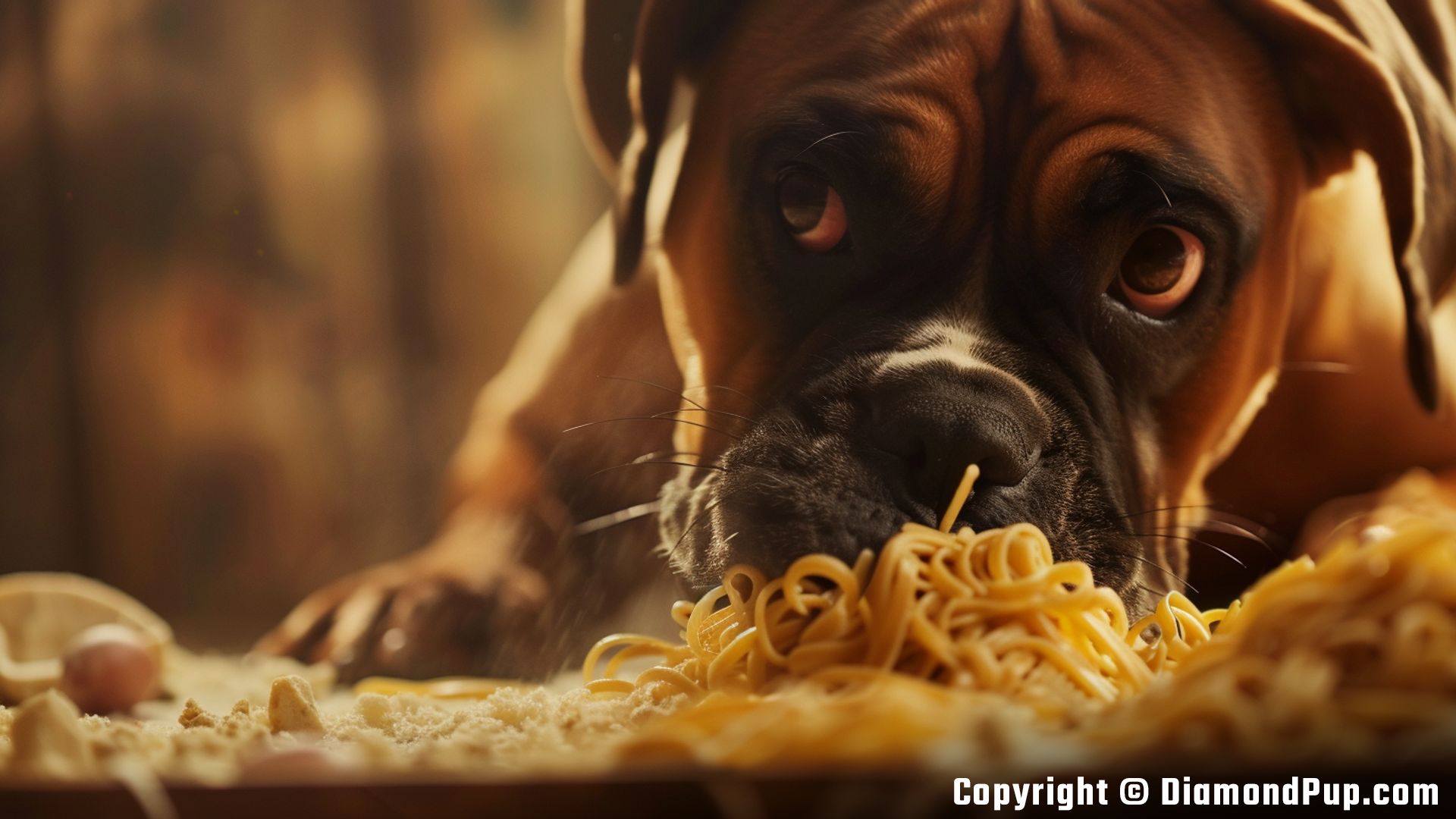
Special Consideration for Boxers
Boxers are a medium to large breed known for their energetic and playful personalities. Due to their muscular build and high activity levels, Boxers have specific nutritional requirements that should be considered when selecting their food, including pasta. When choosing a pasta for your Boxer, opt for whole grain or whole wheat pasta as these varieties provide more fiber and nutrients compared to refined pasta. Additionally, consider incorporating lean proteins such as chicken or turkey into the pasta dish to support your Boxer's muscle maintenance and growth.
Furthermore, Boxers are prone to certain health conditions such as heart problems and sensitive stomachs, so it's important to monitor their food intake closely. Limit the amount of pasta you feed your Boxer to prevent excessive weight gain, which can exacerbate existing health issues. Always consult with your veterinarian or a pet nutritionist to ensure that the pasta and overall diet you choose for your Boxer meet their specific needs and support their overall health and well-being.
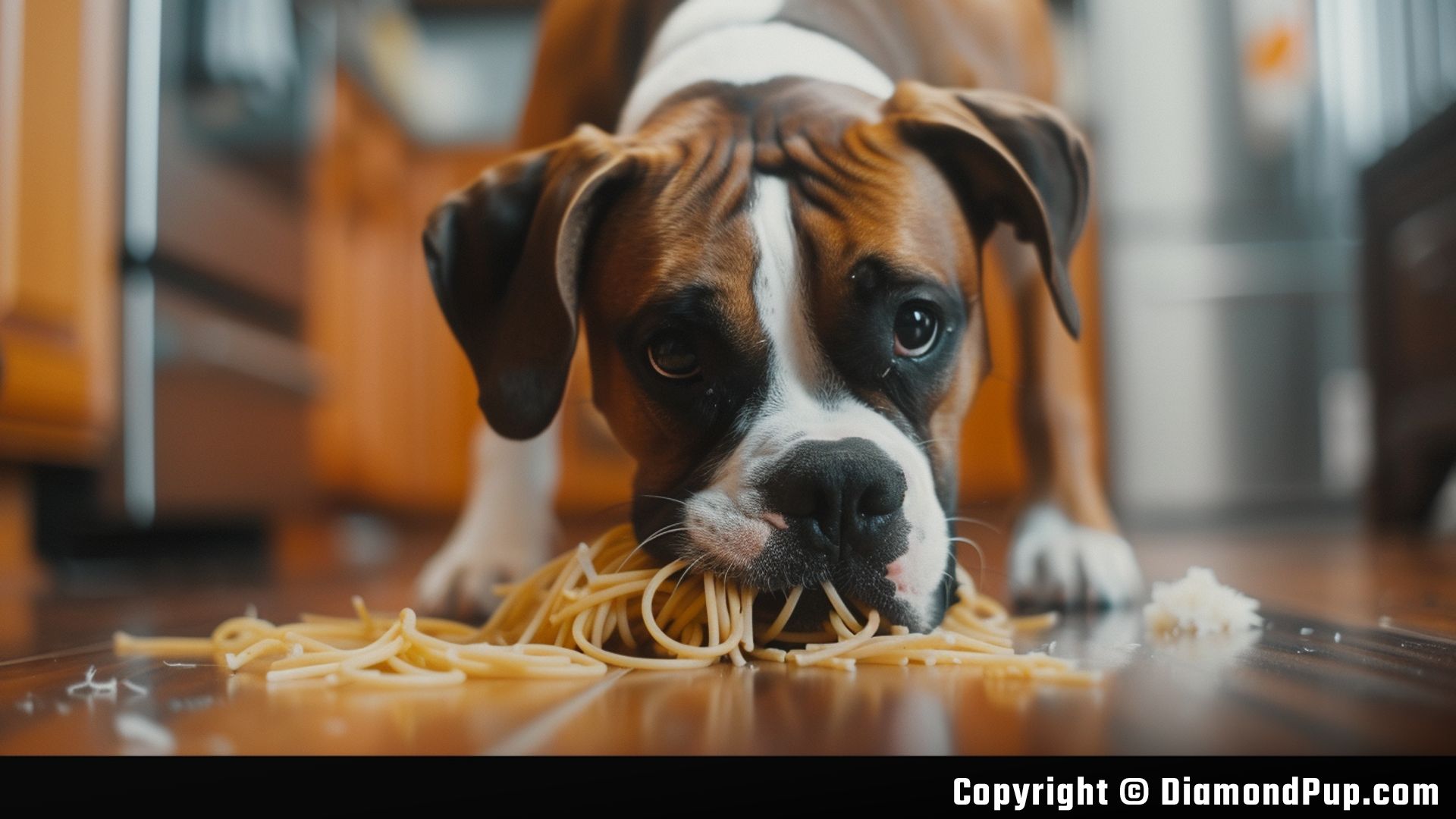
Can Puppies Have Pastas?
When it comes to feeding pasta to Boxer puppies, there are a few important factors to consider. Puppies have different nutritional needs compared to adult dogs, and it's crucial to ensure they are receiving a balanced diet to support their growth and development. While pasta can be a tasty treat for puppies, it should not make up a significant portion of their diet. It's essential to prioritize high-quality puppy food that is specifically formulated to meet their unique nutritional requirements, including the right balance of protein, fat, carbohydrates, vitamins, and minerals.
Additionally, portion control is key when giving pasta to Boxer puppies. Too much pasta can lead to weight gain and digestive upset, which can be particularly concerning for growing puppies. It's best to offer pasta as an occasional treat in moderation, alongside their regular puppy food. By following these guidelines, you can safely incorporate pasta into your Boxer puppy's diet as a flavorful addition without compromising their overall health and well-being.
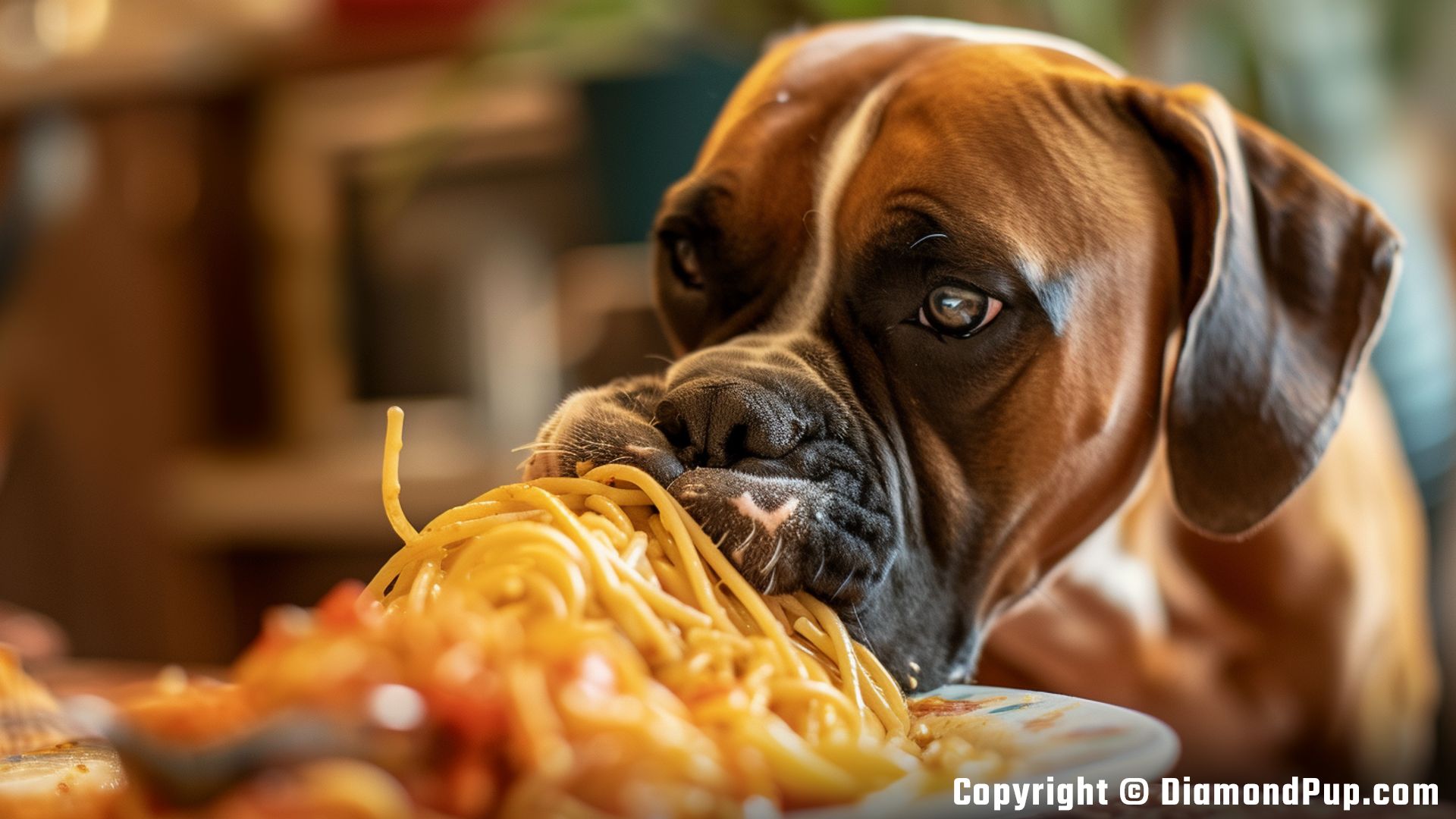
Are there any Boxers that shouldn't eat pastas?
While most boxers can enjoy pasta in moderation as part of a balanced diet, there are some individual dogs within the breed that may need to avoid or limit their intake of this carb-heavy food. Boxers who are prone to obesity or weight gain should be given pasta sparingly, as the high carbohydrate content can contribute to excess calories and potential weight issues. Additionally, boxers with certain medical conditions such as diabetes or gastrointestinal sensitivities may not tolerate pasta well and could experience digestive upset if given this type of food.
It's always best to consult with your veterinarian or a veterinary nutritionist before introducing pasta or any new food into your boxer's diet, especially if your furry friend has specific health concerns or dietary restrictions. They can provide guidance on whether pasta is suitable for your individual boxer based on their unique needs and health status, ensuring they stay healthy and happy in the long run.
Recipes for Feeding Your Dog Pastas
When it comes to feeding your Boxer pasta, it's important to choose the right type of pasta and pair it with other nutritious ingredients to create a balanced meal. Opt for whole-grain pasta over refined pasta to ensure your dog receives essential fiber, vitamins, and minerals. Additionally, incorporating lean proteins such as cooked chicken or turkey can enhance the nutritional value of the pasta dish for your Boxer. Avoid adding ingredients like garlic, onions, or high-fat sauces, as these can be harmful to your dog's health.
Consider cooking pasta al dente to make it easier for your Boxer to digest while still retaining the necessary nutrients. Remember to consult with your veterinarian or a professional nutritionist to determine the appropriate serving size and frequency of pasta in your Boxer's diet, as individual caloric needs may vary based on age, weight, and activity level.
Alternatives to Pastas for Boxers
While pasta can be a tasty treat for your boxer, it's important to remember that a balanced diet is key to their overall health and wellbeing. Instead of relying solely on pasta as a source of carbohydrates, consider incorporating alternative options such as brown rice, sweet potatoes, or quinoa into their meals. These alternatives provide similar energy benefits to pasta but also offer additional nutrients like fiber, vitamins, and minerals that can further support your boxer's health.
When choosing alternative carbohydrates for your boxer, be sure to moderate portion sizes to prevent weight gain and monitor their overall intake to ensure they are receiving a well-rounded diet. By diversifying their carbohydrate sources, you can provide your boxer with a variety of nutrients that support their energy levels, digestion, and overall vitality.
Common Questions About Boxers and Pastas
One common question about feeding pasta to boxers is whether it provides any nutritional value. While pasta is a good source of carbohydrates, which can be beneficial for providing energy, it is important to choose whole grain or vegetable-based pastas to maximize the nutritional benefits. These options are higher in fiber, vitamins, and minerals compared to traditional white pasta, contributing to a more balanced diet for your boxer.
Another concern is whether pasta can contribute to weight gain in boxers. It is essential to control portion sizes and avoid adding high-fat or high-calorie sauces to the pasta. Additionally, incorporating pasta into your boxer's diet should be done in moderation, alongside a well-rounded meal plan tailored to their specific dietary needs and daily activity levels.
Subscribe Now
Stay updated with the latest news and articles! We'll keep you updated on the latest tips for your pet Boxer
